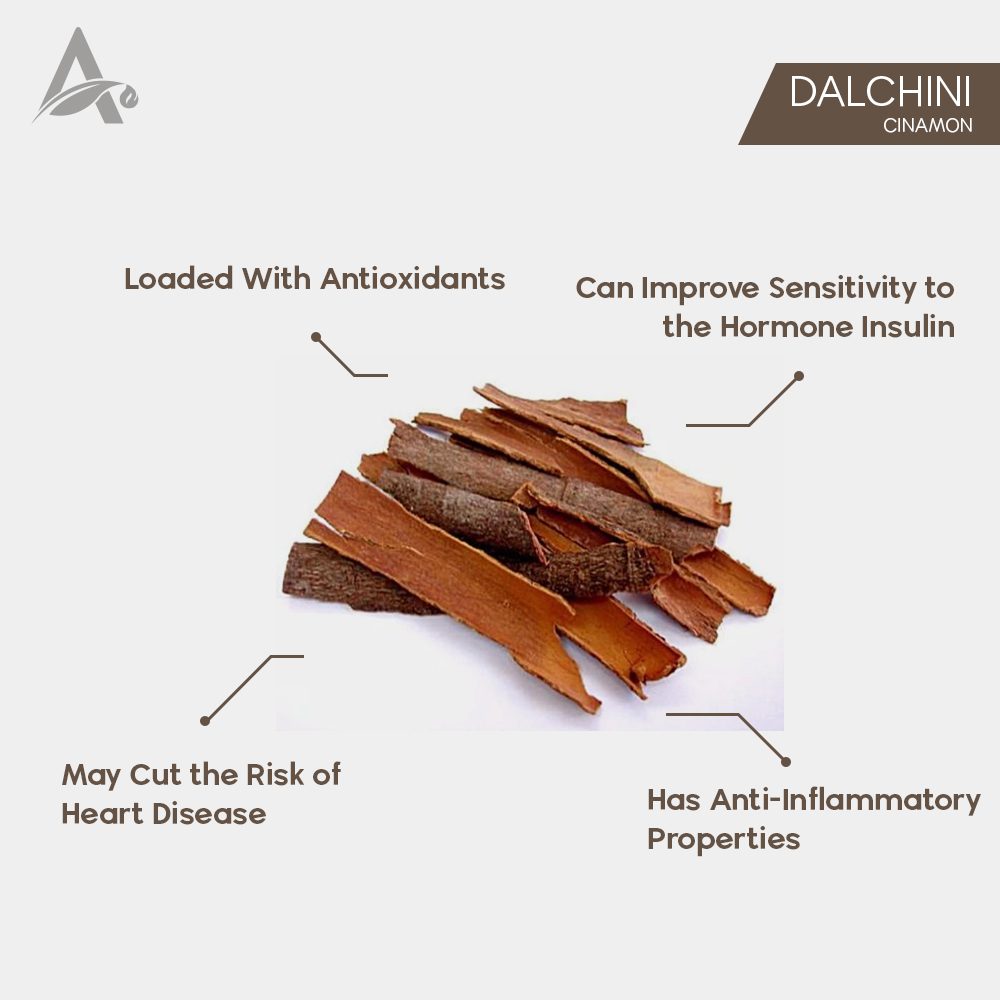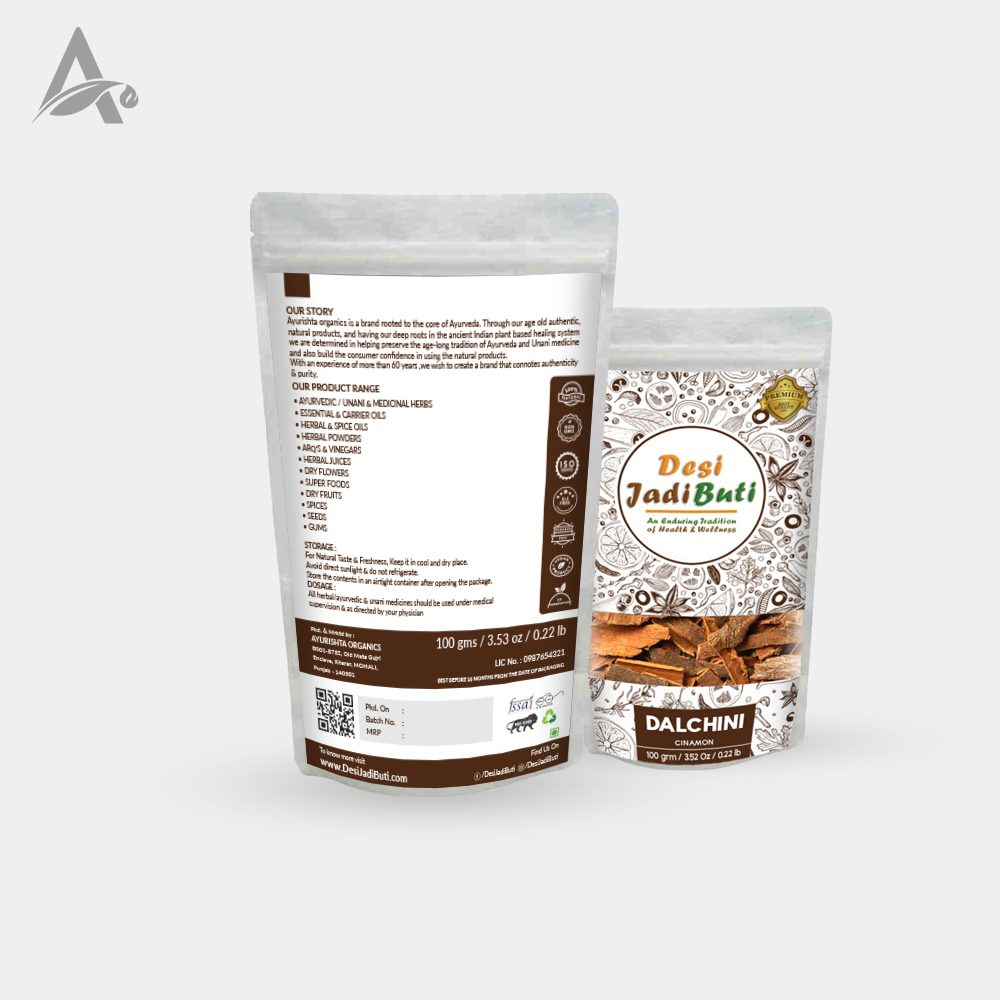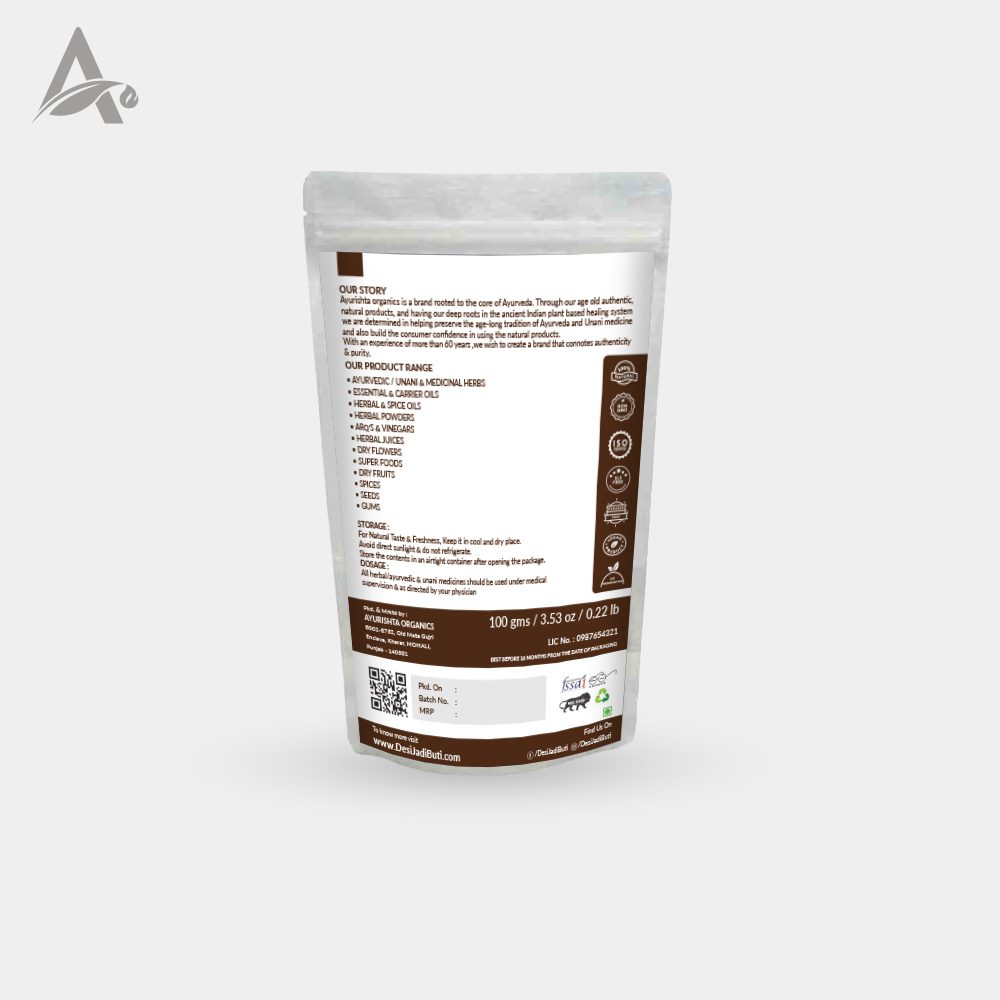Dalchini or Cinnamomum Zeylanicum – Desi Jadi Buti, is the inner bark of a small evergreen tree native to Sri Lanka and was used in ancient Egypt for embalming. Dalchini Masala was also added to the food to prevent spoiling. During the Bubonic Plague, sponges were soaked in cinnamon and cloves and placed in sick rooms.
Dalchini was the most sought-after spice during explorations of the 15th and 16th centuries. Most therapeutic uses of Chinese cinnamon bark are rooted in its historical use as traditional medicine and in laboratory and animal studies. Test-tube or animal research does not guarantee safety or effectiveness in humans, but German health authorities (Commission E) do approve of cinnamon bark for mild gastrointestinal spasms, stimulating appetite, and relieving indigestion.
DALCHINI – CINNAMOMUM ZEYLANICUM Benefits:
Helps us in preventing and curing the following:
- Dalchini is a spice that has ancient origins and is popularly used as flavourings, as a condiment and in cooking.
- Cinnamon is also known to provide various medicinal benefits that include lowering of blood cholesterol, for diabetes. Cinnamon is obtained from the bark of the Cinnamon tree.
- The medicinal uses of this herb are many. It is used to improve digestion and also to provide relief from many digestive disorders such as diarrhoea, flatulence, and nausea.
- Dalchini Masala is also effective in eradicating yeast infections that have become immune to other medications.
- Consumption of cinnamon generates warmth in the system and as such is useful for people who have cold feet and hands.
Other Names:
Dalchini, Daalcheeni, Cinnamon Sticks, Dalchini Sticks, Cinnamomum Zeylanicum.
Safety Information:
- For Natural Taste & Freshness, Keep it in cool and dry place.
- Avoid direct Sunlight & Do not Refrigerate.
- Store the contents in an Airtight Container after opening the package.
- All herbal medicine should be used under Medical Supervision only.






























































































Reviews
There are no reviews yet.